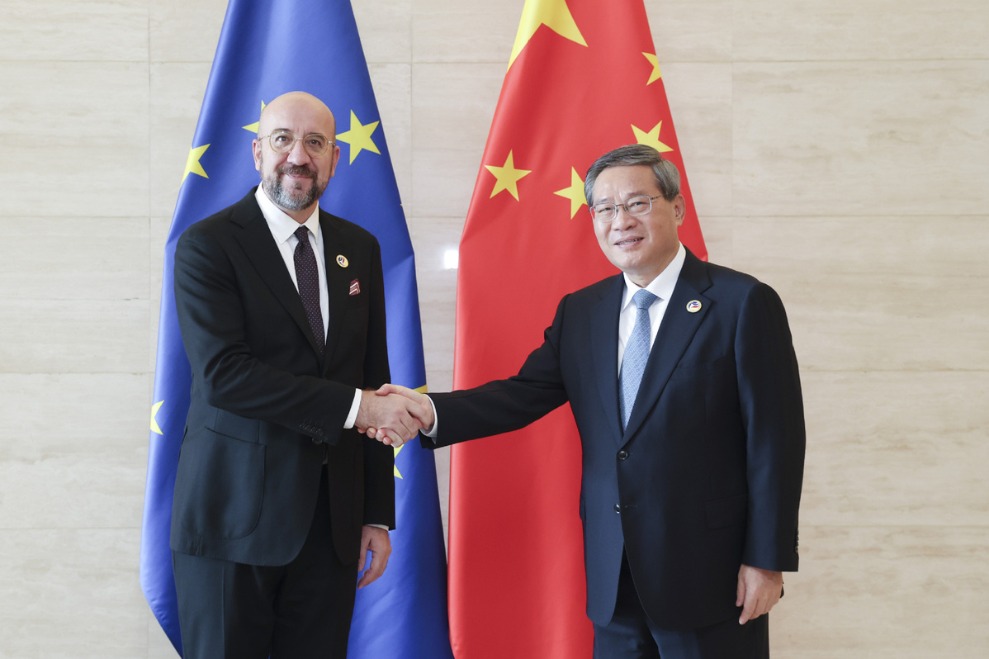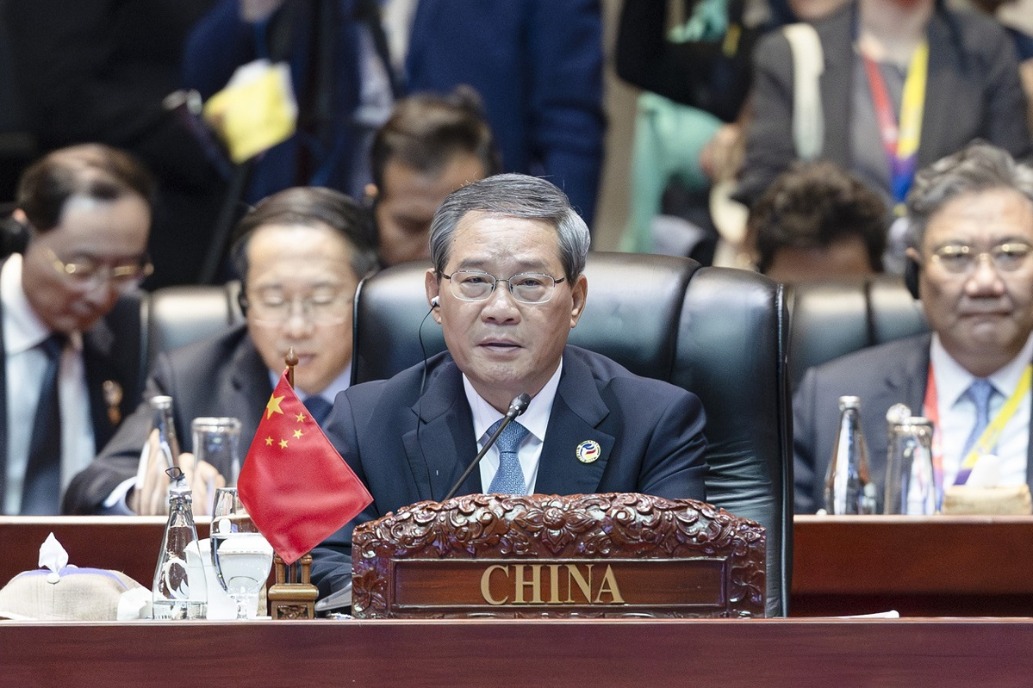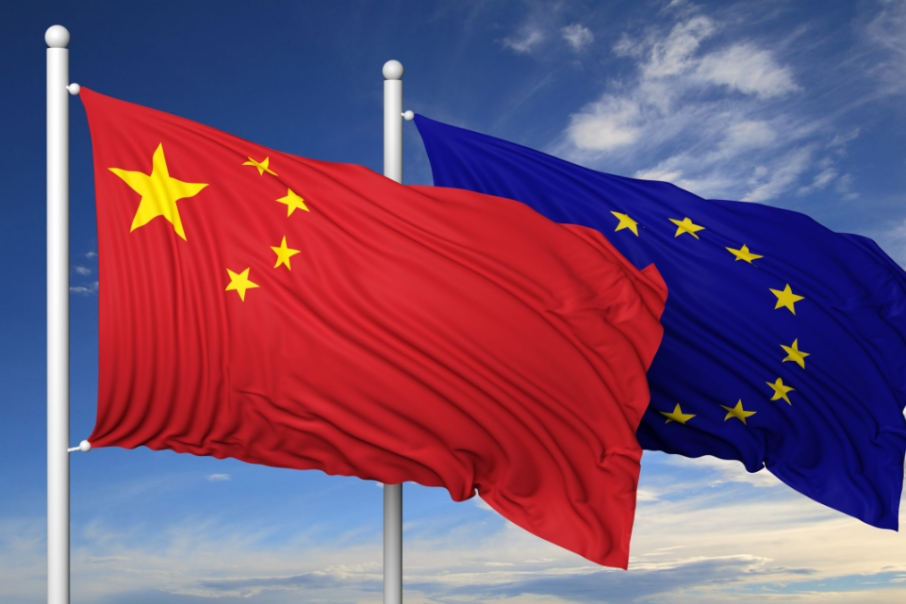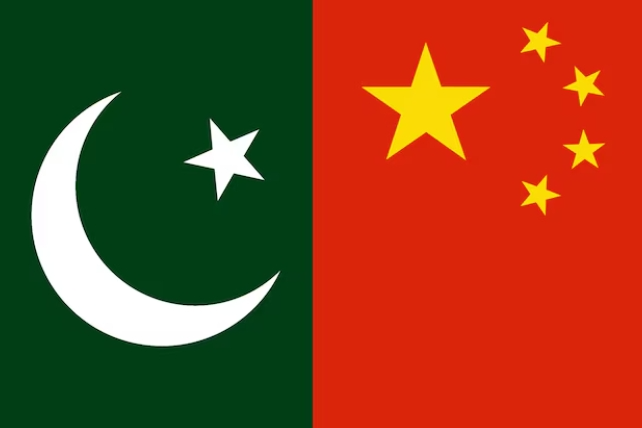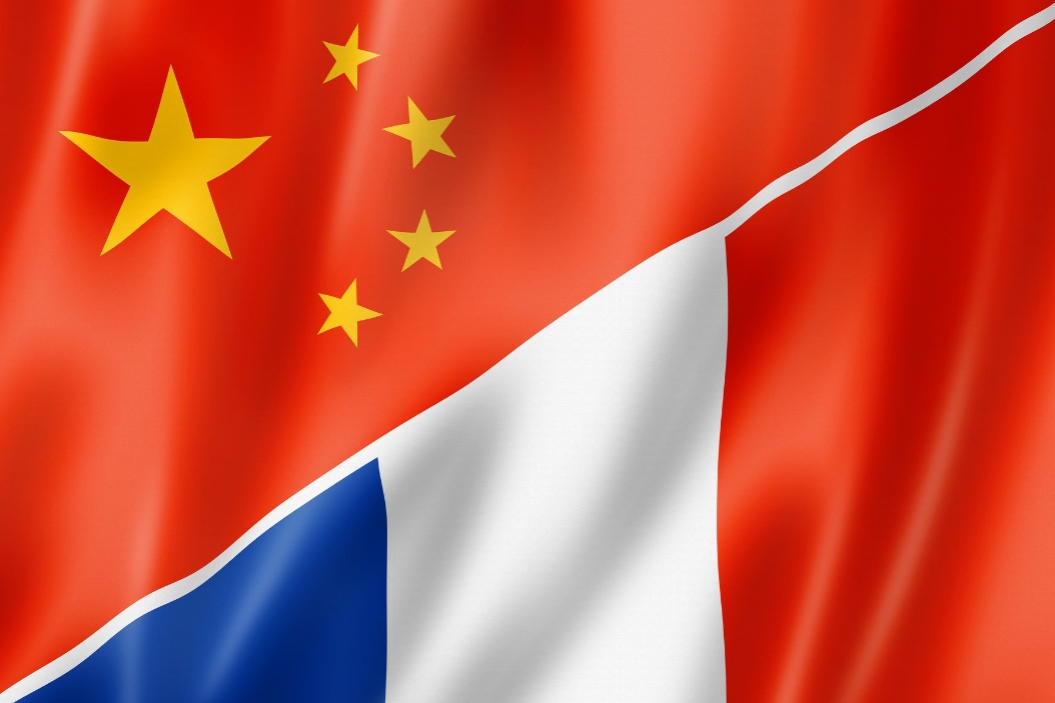Landmark ruling a decisive victory for international law


In late December, the government of South Africa, while strongly condemning the brutal Hamas attack on Israel on Oct 7, took the unprecedented step of requesting that the International Court of Justice in The Hague rule on whether the continuing violence and humanitarian tragedy unfolding in Gaza amounts to genocide by Israel.
The background to this request is the long-standing friendship and solidarity between the people of South Africa and Palestine. The salience of the Palestinian cause in South Africa has deep roots. The South African and Palestinian people share a common history of struggle that goes back decades. Former South African president Nelson Mandela saw in Palestinian leader Yasser Arafat, the late chairman of the Palestine Liberation Organization, a fellow "comrade in arms".
The South African government has proved that it will do everything within its power to preserve the existence of the Palestinian people as a group, end any acts of apartheid and genocide against them, and walk with them toward the realization of their collective right to self-determination.
South African President Cyril Ramaphosa said recently: "As a nation that fought and defeated apartheid, we have a particular obligation to stand up for justice and fundamental human rights for all people, everywhere. It is this obligation that informed our application to the International Court of Justice to halt the violence unleashed by Israel on the Gaza Strip."
Furthermore, as a nation established through diplomacy and negotiation, South Africa is strongly committed to the principle of peaceful resolution of conflicts through diplomacy and to finding solutions that will help avert further escalation.
The International Court of Justice issued an initial ruling on Jan 26 that accepted South Africa's right to bring a lawsuit against Israel accusing it of genocidal acts in Gaza.
The ruling did not call for an immediate cease-fire and also did not rule on the core of the case brought by South Africa. The court's final judgment on whether genocide has or has not occurred in Gaza could take years. But in its interim ruling, the court, with the support of an overwhelming majority of the judges on the 15-member panel, instructed Israel to take provisional measures to prevent any genocidal acts.
This landmark ruling unquestionably marked a decisive victory for the international rule of law and is a significant milestone in the search for justice for the Palestinian people.
South Africa and its many partners around the world are increasingly arguing that the United Nations Security Council veto power wielded by individual states cannot be permitted to thwart international justice, not least in light of the ever worsening situation in Gaza.
Given the ongoing war in Gaza, and having regard to the court's ruling, there is no credible basis for Israel to continue to claim that its military actions, which are cruel, unacceptable and disproportionate, are in full compliance with international law.
South Africa and its international partners cannot afford to be passive bystanders and should cooperate to ensure the urgent and effective implementation of the international court's provisional measures.
South Africa appreciates China's consistent position on the Israel-Palestine conflict, which, among other things, includes condemning all acts against civilians and opposing all moves that violate international law.
China has been steadfast in urging the parties involved in the conflict to work toward a comprehensive cease-fire and the implementation of a two-state solution and a just and lasting settlement of the Palestinian question.
A further matter of growing concern is the soaring tension in the Middle East, which has been threatening to slip toward the precipice of a regional war, ever since the Hamas attack on Oct 7 and the ferocious Israeli response in Gaza. The conflict has had the potential to ignite a disastrous Middle East conflagration, and recent developments have demonstrated just how easily escalation could bring Israel into military conflict with Iran and others.
The situation in the Middle East is highly complex and volatile, and it is a matter of urgency to find a modicum of common ground through diplomacy between the Israeli government and the Hamas leadership to enable a cease-fire, the release of hostages and peace in the region.
The author is a senior research fellow at the Institute of African Studies at Zhejiang Normal University and a former senior diplomat in the South African Department of International Relations and Cooperation.

















